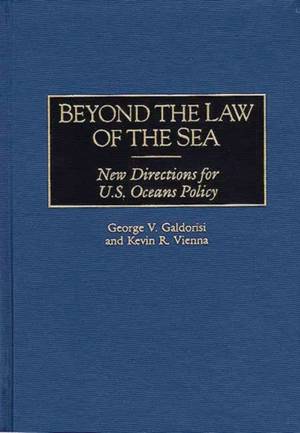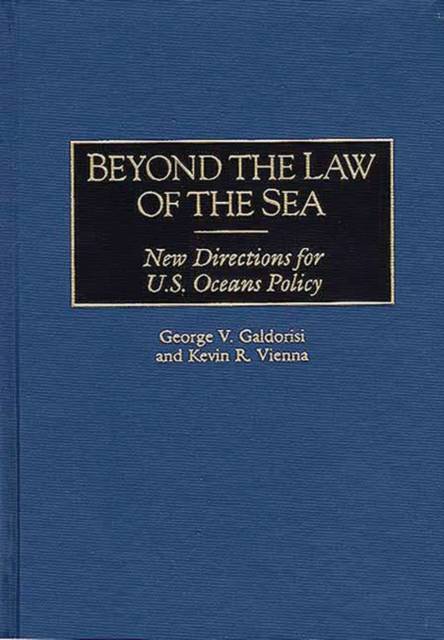
- Afhalen na 1 uur in een winkel met voorraad
- Gratis thuislevering in België vanaf € 30
- Ruim aanbod met 7 miljoen producten
- Afhalen na 1 uur in een winkel met voorraad
- Gratis thuislevering in België vanaf € 30
- Ruim aanbod met 7 miljoen producten
Zoeken
Beyond the Law of the Sea
New Directions for U.S. Oceans Policy
Goerge V Galdorisi, George Galdorisi, Kevin R Vienna
Hardcover | Engels
€ 161,45
+ 322 punten
Omschrijving
The 1982 U.N. Convention of the Law of the Sea took over a decade to produce and was the final result of the largest single international negotiating process undertaken before or since that time. As the world's leading maritime nation, the U.S. has vital, immediate, national interests in the Convention and in the continuing refinement of maritime law based upon the tenets of that comprehensive document. The present work describes in detail the concurrent development of international law and the law of the sea, the complex negotiating process that resulted in the completed Convention, the role of the U.S. both during the Law of the Sea Convention and during the decade of negotiation that finally made the Convention acceptable, and policy directions and issues for the U.S. in the post-Convention environment. This is an important new text in international law, international relations, and maritime affairs.
Specificaties
Betrokkenen
- Auteur(s):
- Uitgeverij:
Inhoud
- Aantal bladzijden:
- 248
- Taal:
- Engels
Eigenschappen
- Productcode (EAN):
- 9780275957544
- Verschijningsdatum:
- 20/11/1997
- Uitvoering:
- Hardcover
- Formaat:
- Genaaid
- Afmetingen:
- 162 mm x 240 mm
- Gewicht:
- 566 g

Alleen bij Standaard Boekhandel
+ 322 punten op je klantenkaart van Standaard Boekhandel
Beoordelingen
We publiceren alleen reviews die voldoen aan de voorwaarden voor reviews. Bekijk onze voorwaarden voor reviews.











